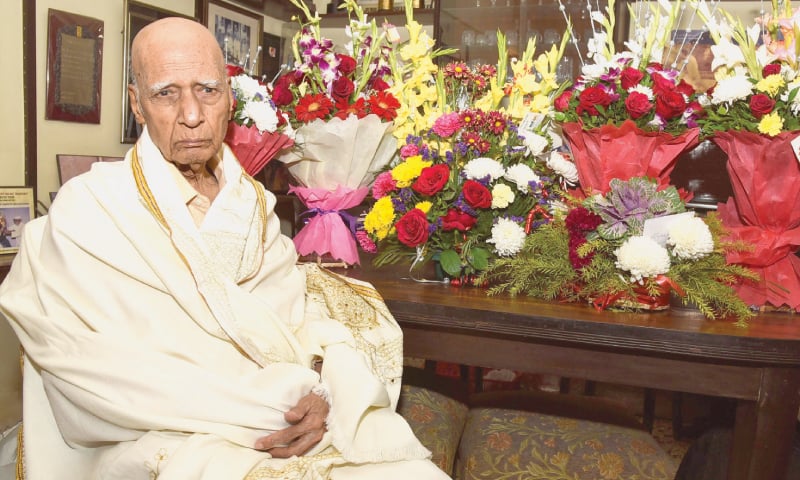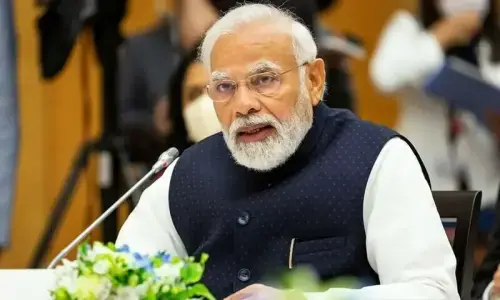NEW DELHI: Legendary music composer Khayyam who passed away at 92 in a Mumbai hospital on Monday would have continued to announce himself as Sharmaji were it not for friendly poets he respected who prompted him to come clean.
Two reasons are cited for his reluctance to say who he really was. First, his original name Mohammed Zahur Hashmi would have been a tad unwieldy for a music director in the company of Naushad, S. D. Burman, O.P. Nayyar or Shankar-Jaikishan.
But easily the real reason for the grudging interest in claiming his own identity was his conservative Muslim Punjabi family for whom music was taboo.
This was not very different from the story of Dilip Kumar, the great actor who had to hide the fact he worked in movies from his Peshawari Muslim Pathan family.
Eventually, it was in Dilip Kumar starrer Footpath that Khayyam, prompted by Majrooh Sultanpuri and Ali Sardar Jafri, took the credit for the musical score as himself.
That was in 1953, and a song penned by Jafri — Shaam-i-gham ki qasam — spurred him to instant fame.
Being driven by music to the point of going into a trance played a role in Khayyam’s early grooming, which began in earnest when he ran away from home at the age of 17. He is said to have become a student of Pandit Amarnath, the favourite disciple of Ustad Amir Khan.
This was not unusual for a film musician as the influence of Indian classical music on Indian cinema had taken strong roots. This in turn was the consequence of different types of Indian folk theatre providing the template for story-telling in in the post silent movie era – from Nautanki in Uttar Pradesh to Tamasha in Maharashtra or Jatra in Bengal, all forms heavily leaning on folk and raga-based songs.
Khayyam’s learning curve with Amir Khan’s style of singing may have showed in his music compositions. Khan’s mainstay was the vilambit or the slow beat -based long exploration of the raag. It was very rare for Amir Khan to sing to a racy cyclical percussion.
Khayyam’s songs too acquired a delicate cadence without any overt distraction from the drum beats. In some sense the songs were sung in a tarannum with lilting notes, a great sense of cadence but bereft of excessive percussion. Consider the haunting composition he got his extremely talented but self-effacing wife Jagjit Kaur to sing — Tum apna ranjo gham, apni pareshani mujhe dedo.
The rhythm came from the piano. Khayyam was quietly responsible for leaving behind amazing tunes that bore the imprint of his aesthetic involvement with Urdu poetry while he explored progressive ideas without didactic undertones.
Sahir Ludhianvi, Kaifi Azmi, Majrooh Sultanpuri and Ali Sardar Jafri came from the progressive corner of Urdu poetry whose works he composed into memorable songs.
Later he indulged his love of romantic poetry too by working with Shahryar in the popular interpretation of Umrao Jan Ada.
In ankhon ki masti mein mastaane hazaaron hain borrowed shades of the evening raag Shuddh Kalyan. Another music legend who made the raag famous — Mundar baju — was Pandit Bhimsen Joshi. And it may not have been a mere coincidence that like Khayyam, Bhimsen Joshi was so smitten with music in his youth that his parents would stick his name and address on the back of his shirt so that he could be guided home whenever lost, which was often the case.
Khayyam’s death marks the end of a grand musical era that saw legends weave magic with gentle notes in indelible patterns. One of his memorable songs — Wo subha kabhi to aaegi — described the tireless wait for the promised dawn, some thought to leave behind for our turbulent times.
Published in Dawn, August 21st, 2019
































